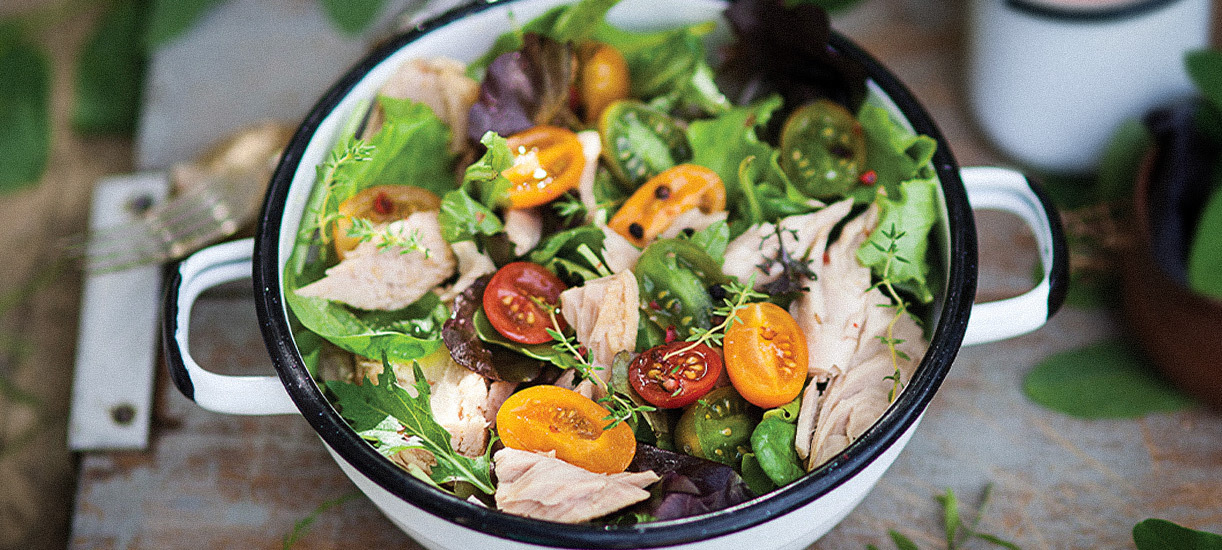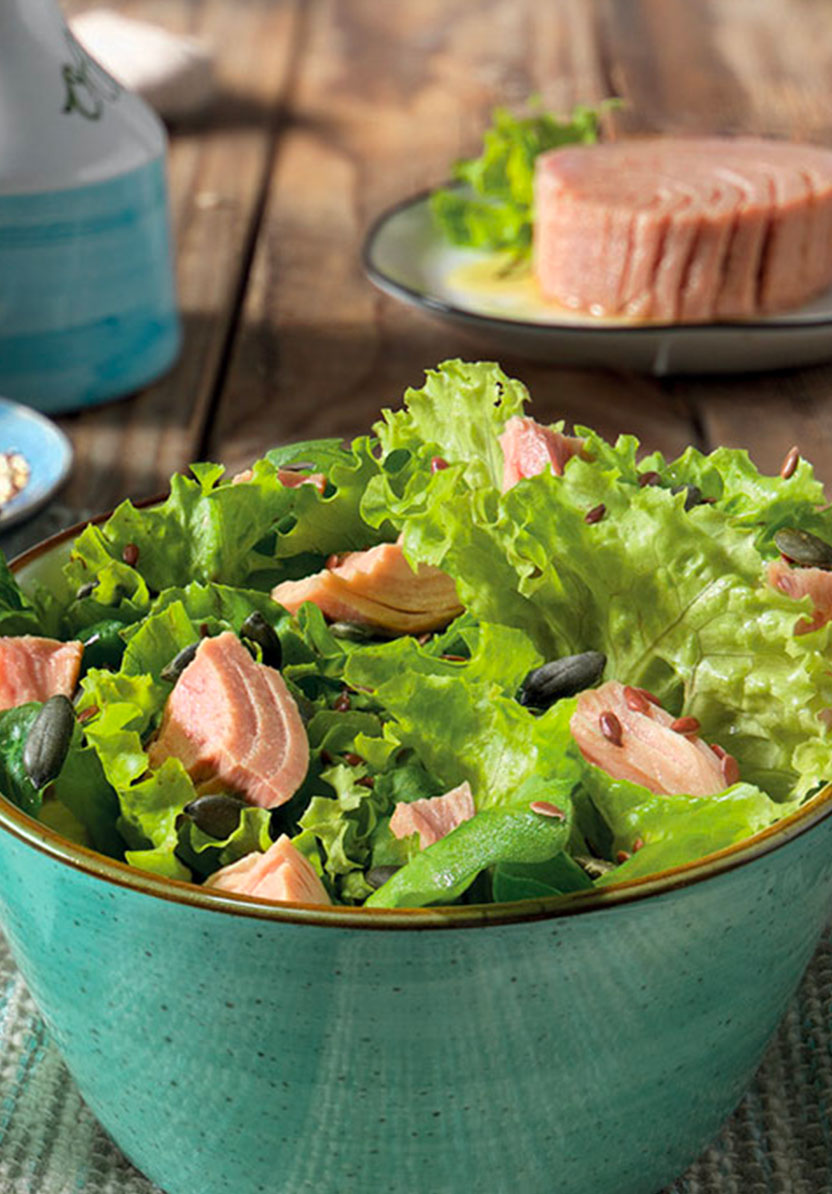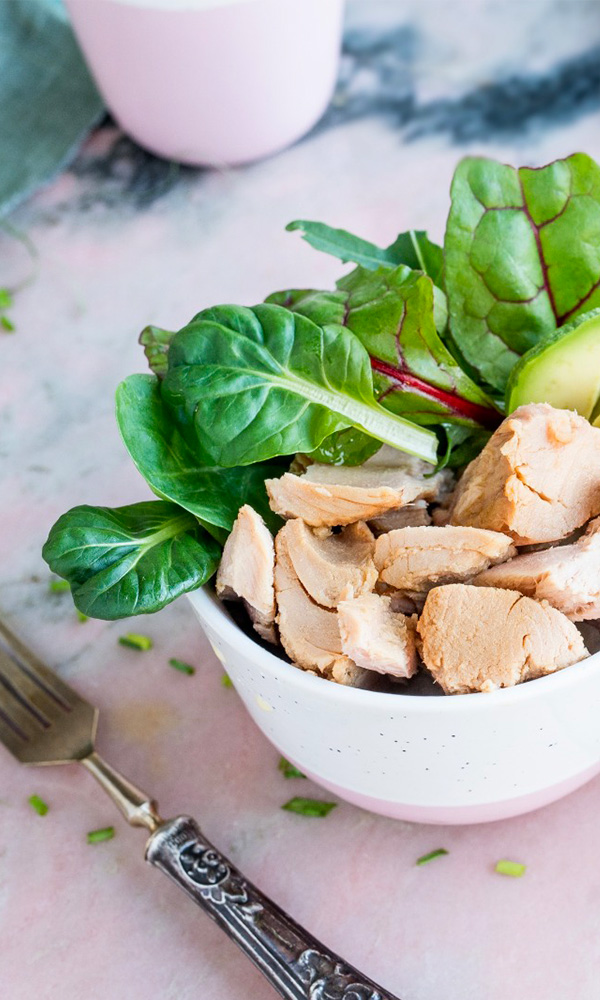Tuna
Protein Mine


A prized food, rich in vitamins and minerals, but especially protein.
A mix of energy and wellness that makes canned tuna the most popular food for people who exercise.
GET YOUR FILL OF IODINE!
Did you know that iodine, an ally against stress, exhaustion and hypothyroidism, is only taken in through food? And 100g of tuna provides 11% of the daily requirement.

Protein for all
Low in fat, zero in carbohydrates, tuna is also ideal for athletes because of its high protein content: 25g per 100 of product. It is a suitable food for children and the elderly: it promotes the growth of muscle mass and reduces the onset of sarcopenia.
Natural antioxidant
Tuna is a natural source of antioxidants, thanks in part to the presence of concentrated selenium: 90µg per 100g of product. Selenium also assists in the formation of thyroid hormones for the proper functioning of metabolism.
A sea of vitamins
Present in tuna are vitamins B12, D, A and B3. D, in the concentration of 25µg per 100g, meets an adult’s daily requirement and promotes healthy bone tissue. A makes tuna a “friend” to eyesight.
source of phosphorus
Iodine and phosphorus are also present in tuna in excellent concentrations. Phosphorus enables the cor- rect absorption of calcium in the intestines, which is essential in bone formation and energy production, among other things.
